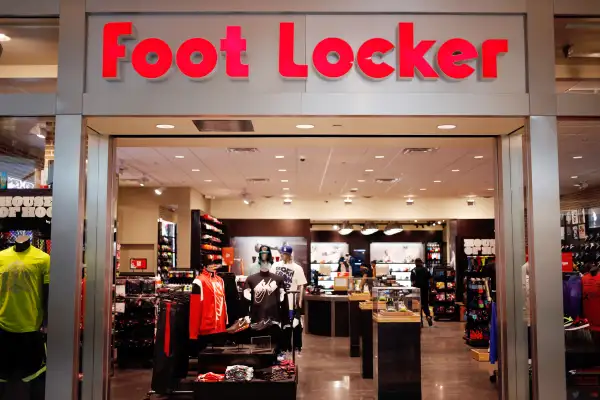These Companies Won the Super Bowl Ad Game Without Even Advertising

This year, companies had to spend $4.5 million for a 30-second commercial aired nationally during the Super Bowl. A TIME panel has graded all the ads, giving some idea as to how each commercial was received by the public and whether it was worth the money.
But TV advertising isn't the only way a company, brand, or group can "win" the Super Bowl marketing game. Oreo's "You can still dunk in the dark" tweet when the power went out in New Orleans at the Super Bowl two years ago is probably remembered by more people today than any ad that aired during the game. What's more, sometimes you can come out a winner because of an unexpected mention of your brand that's broadcast to the world (think: Etch a Sketch and Big Bird during recent political campaigns), or when the advertising efforts of your competitors backfire.
Here are some of the Super Bowl's ad winners that didn't actually advertise:
Foot Locker
Right up until Patriots rookie cornerback Malcolm Butler intercepted a Seattle Seahawks pass on the goal line and effectively won the championship for New England, by far the game's biggest out-of-nowhere hero was Chris Matthews. The Seahawks wide receiver wound up with four receptions, 109 yards, and a touchdown in the Super Bowl, despite the fact that he hadn't previously caught a pass in the NFL.
Where did Matthews come from? Bizarrely enough, he came from Foot Locker. Technically, Foot Locker did advertise during the Super Bowl—a regional commercial that aired in only a few markets, not nationally—but the retailer got far more attention thanks to Matthews. After Matthews scored a touchdown at the end of the first half, both "Chris Matthews" and "Foot Locker" were trending on Twitter because he was an employee of the sporting goods store before the Seahawks invited him to try out for the team roughly a year ago.
Popeyes
In the same way Matthews' terrific play on the field raised the profile of Foot Locker, the heroic game-winning play by Butler is generating attention for his former employer, Popeyes Chicken. Butler, an undrafted rookie, worked at Popeyes during what he called a "life-changing" summer in between being kicked out of a community college and playing football with a Division II program at West Alabama.
Malcolm Butler's amazing play also seems to have given the '00s comedy "Malcolm in the Middle" a boost, thanks to headline writers writers who couldn't help themselves.
Craft Beer
Budweiser was widely applauded for having perhaps 2015's best Super Bowl commercial, featuring one very brave puppy. However, another ad fell a bit flat with many beer lovers.
For years, Anheuser-Busch InBev, which owns Budweiser, Bud Light, and many other macro brands, has been trying to revamp its old-fashioned, stale image and stop losing market share to increasingly popular craft brewers. To do so, the world's biggest brewers have been launching so-called "crafty" beers, which appear to be small brands but are in fact made by multinational companies, and AB-InBev in particular has also resorted to simply buying craft beer labels, including once indie brands like Goose Island, Blue Point, Ten Barrel, and Elysian.
Despite its obvious interest in craft beers, AB-InBev apparently thought it would be wise to mock craft brewers and the stereotypical hipster beer geeks who enjoy them in a defensive Super Bowl ad taking pride in the way Budweiser is not "fussed over" and is instead brewed for drinking rather than "dissecting." Craft enthusiasts like those at Beer Advocate viewed the Bud ad as a swipe against them, and also as an implicit acknowledgement that the beer giants know craft beer is a major threat. Besides, after being accused of ragging on beer lovers, Budweiser tweeted something of an apology: "We're not anti-craft. Just pro-Bud."
Any Insurer Other than Nationwide
A big reason that companies advertise during the Super Bowl is that they want their brands to be remembered and discussed around the country. So in one way, Nationwide achieved its goal by airing the Super Bowl's most memorable commercial. Yet the reason the ad was so memorable and so widely mentioned on Twitter is that the spot was an unexpected, depressing punch to the gut about preventable child deaths.
"We knew the ad would spur a variety of reactions," a Nationwide statement explained after the commercial aired. "The sole purpose of this message was to start a conversation, not sell insurance. We want to build awareness of an issue that is near and dear to all of us—the safety and well being of our children."
Certainly the ad got people talking—only the vast majority of the discussion was about how disturbing and depressing the commercial was. "The intention of that ad was very good, but it's just playing with fire focusing on an adolescent's death in the context of the Super Bowl," Charles Taylor, marketing professor at the Villanova School of Business in Pennsylvania, told the Associated Press, in a story that listed Nationwide as one of Super Bowl advertising's big losers.
Yes, people are talking about Nationwide. But as the freshly minted hashtag puts it, many are saying that #NationwideKills. Perhaps the campaign helps Nationwide simply because it is so memorable and jarring. Then again, is it wise for any company—even an insurer—to so blatantly associate itself with dead children, tragedy, and heartbreak during what is normally a fun gathering of all ages in American living rooms?
